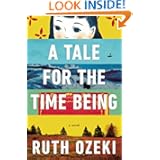 “I remember saying things, but I have no idea what was said. It was generally a friendly conversation.” —Associated Press reporter Jack Sullivan, attempting to recount a 3 A.M. exchange we had at a dinner party and inadvertently describing the past ten years of my life.”
“I remember saying things, but I have no idea what was said. It was generally a friendly conversation.” —Associated Press reporter Jack Sullivan, attempting to recount a 3 A.M. exchange we had at a dinner party and inadvertently describing the past ten years of my life.”
When I read this book nearly ten years ago, I became an instant fan of writer Chuck Klosterman. While he knows a lot more about music....and movies....and in general, pop culture, than I do, he basically knows about the music and movies and pop culture that I wish I did.
Also, if you grew up in the 1980s or 90s, nearly every single reference he makes is something that will make you say "Oh my God, I remember that!"
He deconstructs "Saved by the Bell" while also making mention of "When Harry Met Sally" - so obviously it spoke to me. And he touches on everything from Billy Joel and Star Wars to basketball and Pamela Anderson.
Basically, this collection of essays is a great book you can pick up and put down as needed. Admittedly, I skipped a few here and there that didn't speak to me, but overall, I've recommended this book to a number of friends, all of whom are still speaking to me. So....that says something, right?
I loaned this to Amanda, who enjoyed it, but likely, since it's somewhat generational, mom and dad will likely skip it.
Either way, though, recommended from anyone 30-45 years old who paid any attention at all to their pop culture surroundings while growing up.
Enjoy!
























